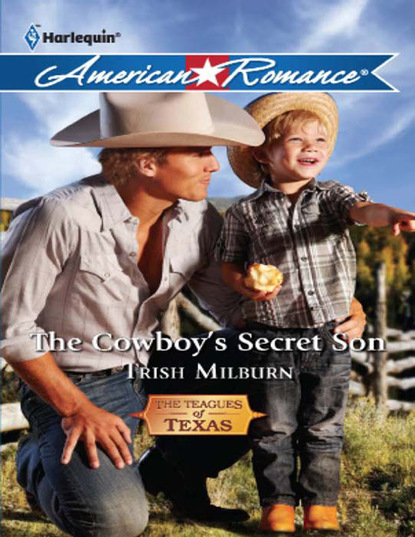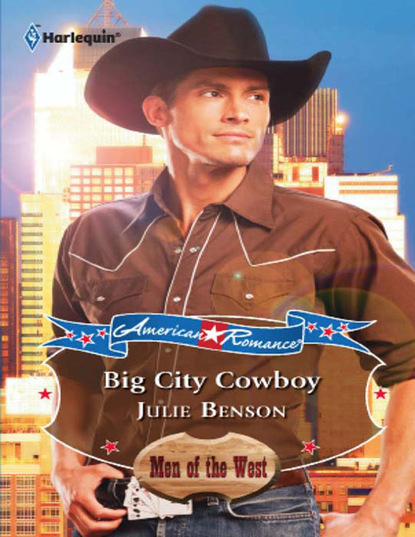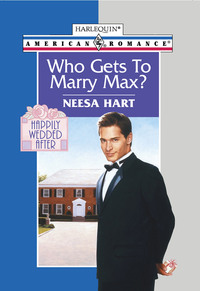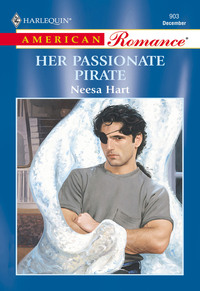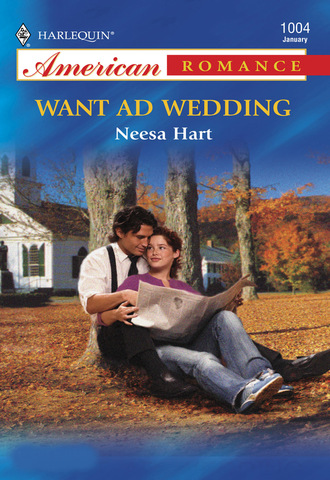
Полная версия
Want Ad Wedding

“Tell me, Molly. Tell me what you’re feeling.”
She shivered. “Much,” she answered. “It’s too much.” She pushed him slightly away from her. “I didn’t think…” Her words trailed off and she dropped her head to his shoulder. “I can’t think.”
Sam understood. He’d had weeks to consider his attraction to Molly, what he wanted and how he wanted to pursue her. Unless he missed his guess, she hadn’t even realized what she was feeling until earlier today. He wrapped both arms around her and pulled her close so she could feel the warmth and hardness of his body.
Molly shivered again and leaned against him. Her lips met his, kissing and probing, tasting and experimenting.
“It’s okay,” he assured her. “I’m not trying to rush you into anything. I just want you to know how much I want you.”
“Whatever I’m feeling,” she whispered, “it’s not rushed.”
Want Ad Wedding
Neesa Hart

www.millsandboon.co.uk
MILLS & BOON
Before you start reading, why not sign up?
Thank you for downloading this Mills & Boon book. If you want to hear about exclusive discounts, special offers and competitions, sign up to our email newsletter today!
SIGN ME UP!
Or simply visit
signup.millsandboon.co.uk
Mills & Boon emails are completely free to receive and you can unsubscribe at any time via the link in any email we send you.
ABOUT THE AUTHOR
Neesa Hart is the multipublished, award-winning author of more than twenty books. Her other titles for Harlequin American Romance include Who Gets To Marry Max and Her Passionate Pirate. She lives in central Virginia, where she is hard at work writing her next novel and her second children’s choir musical. You can reach Neesa at neesa@infoline.net.
Dear Reader,
People are always asking writers, “Where do you get your ideas?” and to be perfectly honest, I don’t always have an answer. Usually the real answer is something like, “Oh, well, I was at the beauty shop reading a magazine when I saw an article that reminded me of a person I knew in high school who now works for a major corporation and I remembered that she had the same color hair as the woman in the picture, which made me wonder if that particular color would look good as paint on someone’s wall, and if so, what kind of decorator would apply it and how would her client react?” Um, yeah.
But in the case of Want Ad Wedding, I actually have an answer I can share with you! I have a very good friend who got me hooked on the intrigue and pleasure of reading personal ads. The tiny little biographies are fascinating. I was reading the ads in our local paper one day and saw an odd one that essentially said, “I hope I never see you again,” which naturally made me wonder what had inspired a person to pay money to print something like that. Was it a rash act, like an e-mail fired off without forethought? Did the advertiser now regret putting the words in print? And if he or she did, could the situation be salvaged?
So Want Ad Wedding was born. And what kind of hero could I pair with a headstrong, impulsive, act-without-thinking heroine? A master of self-control and decorum, of course—just to keep things interesting. Throw in some hometown fun, a few ducks and a host of eccentric family members and Bam! Fireworks.
Enjoy!
Neesa Hart
Contents
Chapter One
Chapter Two
Chapter Three
Chapter Four
Chapter Five
Chapter Six
Chapter Seven
Chapter Eight
Chapter Nine
Chapter Ten
Chapter Eleven
Epilogue
Chapter One
WANTED: self-assured, confident woman to mend ways of arrogant confirmed bachelor. Sam Reed, Operating Partner and CFO of Reed Enterprises, seeks a candidate of marriageable age who is looking for a serious commitment. The ideal woman must be able to tolerate arbitrary decisions, poor communication skills, lack of responsiveness, ice-cold glares, periodic tantrums and smugness. Mr. Reed also possesses a vengeful nature that makes indefatigable patience a necessity. Candidates must be willing to accept years of frustration and irritation in exchange for sharing Reed family fortune and domiciles. Due to Mr. Reed’s lengthy business trips and frequent travel, benefits of this position include long periods of solitude, separation, and down-time. Interested candidates may apply directly to Mr. Reed, c/o the Payne Sentinel, Payne Massachusetts.
Aunt Ida always said, “Wear your best on your worst day. Because days come and go—but looking good is what counts.”
Molly Flynn always made a point of taking her aunt Ida’s advice. So on Monday morning, she’d ironed her best pair of jeans, pulled on a new University of Delaware sweatshirt, and put new laces in her sneakers before heading off to work. Today, she figured, was quite possibly going to be the worst day of her life. After berating herself for the carelessness, impulsivity and outright idiocy that had gotten her into this mess, she’d managed to pull herself together after a stern lecture to her reflection in the mirror. As Aunt Ida always said, Flynns were not quitters. Flynns did not hide from their mistakes. Flynns had pluck.
Actually, Aunt Ida had referred to Flynn tenacity as an unmentionable part of the male anatomy. But ever since her mother had washed Molly’s mouth out with soap for repeating the phrase at dinner one night, Molly had called it pluck.
But that morning, she’d given her reflection a knowing look that said she meant exactly what Aunt Ida had said.
Then she’d splashed enough cold water on her face to diminish the bluish circles under eyes, whipped through her usual ten-minute routine of light makeup and strong coffee; wrestled with her lamentably curly red hair until it became apparent that even her hair was going to get the better of her today; and made her way to the Payne Sentinel offices in historic downtown Payne, Massachusetts, where she was going to get fired as soon as Sam Reed got to the office.
She’d felt vaguely like a condemned prisoner making her way to the guillotine. Her fate was inevitable. The only thing she could control was how she reacted to it.
And Flynns never cowered.
So Molly leaned back in her battered chair in the Payne Sentinel copy office and stole a glance at the clock. 8:58. Two minutes and counting.
“All right, Molly—” Cindy Freesdon entered the copy office, dropped her purse to the floor and pulled a chair up to the edge of Molly’s desk. She pinned her with an avidly curious look. “Give, babe. When were you planning to tell us you and Reed were, you know, friendly?”
Molly stifled a groan. Humiliation was bad enough, but public humiliation was far worse. She wished Sam Reed would hurry up and drag his predictable, irascible, temperamental, bullheaded self to work and be done with this so she could clean out her desk and go home.
She gritted her teeth and met the probing look in Cindy’s blue eyes. “It’s not like that,” she assured her friend. “You don’t understand.”
Cindy dangled the Personals section between her thumb and forefinger. “I read the morning edition while I was getting dressed.” She indicated the copy room where the activity level had already reached light speed. “You’re the one who placed this ad for Reed. It’s got your sense of humor all over it.”
Molly forced herself not to flinch. “Not on purpose.”
That sent Cindy’s eyebrows into her bleached blond bangs. “Oh, this is too wicked.”
“Do you think everyone else knows?”
“My phone started ringing ten minutes after the paper landed on my doorstep. I tried to squelch the gossip, but even I don’t have that much power.”
That won a halfhearted laugh from Molly. Cindy Freesdon was the Sentinel’s resident busybody. She didn’t doubt that all interested parties would have turned to Cindy for information when the inflammatory personal ad showed up in the Sentinel’s Monday edition. “Thanks,” she told Cindy. “I’m already going to get fired. I’d rather not be humiliated on top of it.”
Cindy pursed her lips. “I hate to break it to you, but it’s kind of a lost cause. If it makes you feel any better, I did make them feel guilty as sin about it.” She shrugged slightly. “There’s not a person in this room you haven’t bailed out at one time or another.”
“This is my family,” Molly said simply. “I’ve always thought of it that way.”
“That’s obvious.” Cindy tapped a long fingernail on Molly’s overladen desk. “So that’s why everyone’s pretty much drawn the same conclusion—there’s no way you would have risked what you’ve got here by running that ad simply because you were miffed about the argument you and Reed had on Friday.”
“You don’t think so?”
Cindy gave her a pointed look. “I may not be the investigative reporter you are, Molly, but I know a lover’s tiff when I see one.”
Molly exhaled a weary breath. “I don’t suppose it would do me any good to deny that.”
“Probably not.”
“It’s a long story. It was a joke—my friend, JoAnna—” She shook her head. “I don’t have time to explain it right now. He’ll be here soon.”
Cindy stole a glance at the clock. “Forty seconds, if he’s on time.”
“He’s always on time.”
“Good point.” Cindy dropped the copy of the paper on Molly’s desk. “Lunch today? You can fill me in then.”
“Sure. I’ll be fired by then, anyway. At least I won’t have to clock out,” she said bitterly, the hated time clock—one of the many unwelcome changes Sam Reed had brought to the Payne Sentinel.
The antique clock that had kept vigil over the newsroom for nearly a century chimed nine. Precisely on schedule, the wide glass doors swung open, admitting a gust of chilly October air and forever suspending the rest of Cindy’s comment. The usual busy hum of activity in the newsroom ground to a halt. Fingers stopped typing, and chairs stopped creaking. Chatter ceased and pencils stilled. Only the lonely hum of a printer punctuated the eerie calm as one hundred eyes turned simultaneously to watch the drama unfolding at Molly’s desk.
Pluck, Molly reminded herself, as she met the steel-colored gaze of Sam Reed. He had a right to be furious. Since she’d seen the morning paper, she’d known this was going to turn ugly. She’d seen Sam angry only once. A member of the editorial staff had deliberately fabricated a source—forcing the Sentinel to issue a public apology. The look Sam had given the man could have melted glass.
Molly fully expected to find that same look in his eyes when she met his gaze. What she found, instead, stole her breath. Yes, his normal cool, implacable calm was gone, but she couldn’t quite pin a name to the expression in its place. A banked fire made his eyes look darker than usual—like storm-laden skies on a hot summer day. But what threw her the most was the slight sparkle that made him look as though he was enjoying himself.
This was going to be worse than she’d imagined, she thought with a sinking sense of dread.
Sam held her gaze for several long seconds, then announced a breezy “Good morning” to the staff. In the six weeks he had been running the paper, he’d arrived every morning at precisely nine o’clock. And every morning, he’d breezed through the newsroom without acknowledging the existence of the fifty or so employees who warily watched his daily trek to the elevator. No wonder then, Molly mused, that his butter-soft voice had the impact of a class-four tornado. She was surprised when the collective intake of breath didn’t rustle the piles of papers on her desk.
Damn him, she thought as she studied his normally implacable features. Dark hair framed a face made of angles and planes. There wasn’t a soft edge on the man. And he was definitely enjoying this. Like a cat, she mused, moving in on a helpless mouse and savoring the poor thing’s moment of doom.
Sam crossed the two steps to her desk and subtly shifted his briefcase so Cindy had to ease to the side. He planted the Italian leather case amid the clutter and leaned in with the smooth confidence of a predator.
At least, Molly thought wryly, her colleagues would have something to remember when she was gone. The spectacle he was causing was the stuff newsroom lore was made of. Despite herself, she had to suppress a small bubble of amusement. She didn’t think Sam would appreciate knowing that his legacy at the Sentinel was going to be reduced to newsroom gossip.
Something in her expression must have flickered, tipping him that he’d momentarily lost the upper hand. Swiftly, he produced a daisy from his left coat pocket with enough flourish to ensure he had her complete attention. He dropped it in her pencil cup, then leaned so close that Molly had to force herself not to retreat. While her colleagues raptly watched, Sam cupped Molly’s face in his large hand and pressed his mouth to her ear. “In my office in ten minutes.”
An unmistakable thread of steel undergirded the soft command. “Okay.”
He stood, trailing his fingers along the line of her jaw as he stepped away from her desk. Flashing Cindy Freesdon his million-dollar smile, he brushed past her and made his way to the elevator.
The doors slid smoothly shut before anyone breathed. In the vacuum that followed, a small crowd formed around Molly’s desk.
“My God, Molly.” David Ward straightened his wire-frame glasses. “You really did run that ad, didn’t you?”
Priscilla Lyons threw Cindy an accusing glance. “I told you.” Priscilla pinned Molly with a hard look. “Come on, Molly—we’re dying here. How long have you been involved with him?”
Molly reached for her patience. “This isn’t what you think.”
Priscilla’s eyes twinkled. “No? Sparks have been flying between you two since he got here a few weeks ago.”
David laughed. “A daisy, Molly?” He glanced at the pencil cup. “The man brought you a daisy.”
Cindy laughed. “If it had been a rose, that might have been suspicious, but daisies? In October?”
“He’s annoyed,” Molly assured them.
“Mm-hmm.” Priscilla looked unconvinced. “I wish someone would get annoyed with me that way.” She rolled her eyes. “I can’t believe I didn’t see this coming.”
That made Cindy chuckle. “It was the look in his eyes that practically did me in. Lord, did you feel the electricity popping in here?”
“My monitor dimmed,” supplied one of the copy editors.
David planted his hands on Molly’s desk. “We’re your friends.”
“We’ve been watching you and Reed go at each other for weeks,” Priscilla added. “I should have known something was up.”
“Nothing,” Molly said through clenched teeth, “is going on.”
Cindy tapped her fingernail on Molly’s desk. “You can’t leave us in suspense like this. It’s not fair.”
Molly stifled a weary sigh. As much as she enjoyed the family-type atmosphere at the Sentinel, today it was making her feel claustrophobic. She’d already ducked two calls from her sisters this morning before she’d left her apartment, and was certain the rest of the Flynn clan would be calling for answers before the day was out. Her family was nothing if not persistent. She reached for the envelope on the corner of her desk, sliding it into her pocket as she stood up. “Look. I have to get upstairs. He’s expecting me.”
“I’ll bet,” Priscilla drawled.
Molly ignored her. “I’ll tell you all what happened as soon as I get back.”
“We’ll be waiting,” David assured her.
THREE MINUTES LATER, she walked into the outer office of the upstairs suite where Sam Reed controlled the Payne Sentinel. Had it only been six weeks? It felt like a lifetime. “Morning, Karen,” she greeted the young woman behind the reception desk. “He’s expecting me.”
Karen gave her a sympathetic look. “So he said.” She shot a quick glance at his closed door, then dropped her gaze to the classified section on her desk. “Er, Molly—”
“It’s a long story,” Molly assured her.
“I can imagine.”
Molly paused, deliberately stalling for time. “Do you think he’s going to kill me when I go in there?”
Karen’s eyebrows knitted together in confusion. “Nooooo,” she said thoughtfully. “He didn’t seem mad or anything.”
Molly didn’t think that was a particularly good sign. “No?”
“Uh-uh. He was, you know, like he usually is. Intense, only—” Karen seemed to search for a word.
“Darker?” Molly supplied.
Karen shook her head. “No, more like ‘alive’ or something. Actually, I’d say he’s in a pretty good mood.” She glanced at the paper again. “Considering.”
“Great.”
Karen leaned closer. “Frankly, I thought the two of you were actually going to come to blows in that meeting on Friday.”
“Me, too.”
“So it really didn’t surprise me—” The buzzer on her phone interrupted her. Karen gave a guilty start and punched the button. “Yes?”
“Is Miss Flynn here yet, Karen?”
“Yes, sir.”
“Good.” The soft click of his phone seemed to reverberate off the glass walls of the reception area.
Karen gave Molly a knowing look. “I guess you should go in.”
Molly nodded, forcing a bright smile, and headed for the door to the lion’s den. Sam pulled it open the instant she reached for the doorknob. Startled, she raised her gaze to his and saw a flinty look that quickly dissolved as he flashed an unusually warm smile. Was it her imagination, or was there a hint of steel in it? “Morning,” he said quietly, then looked at Karen. “Hold my calls, will you, Karen?” He placed his hand at the small of Molly’s back.
“Sure.” Karen leaned back in her chair, her expression speculative.
Sam was already applying a subtle pressure to her back, leading her through the door. “This could take awhile.”
The instant the door shut behind her, he dropped his hand, and walked to his desk in silence. When he had rounded it, he sat in the high leather chair and simply watched her with an enigmatic look in his eyes. Molly felt her sneakers sinking into the plush carpet. Like quicksand, she mused. She had to fight the urge to shuffle her feet. She’d seen a survival documentary once where the expert had explained that the surest way to die in quicksand was to fight the inevitable by thrashing around.
She pulled an envelope from her back pocket and headed for his desk. “Before you fire me,” she said, “I can save you the trouble.” She dropped the envelope. “That’s my letter of resignation.”
He said nothing. She tried not to squirm. This was beginning to feel like the time in kindergarten when she’d been called to the principal’s office for slugging Carolyn Lockhardt on the playground. The man hadn’t understood that Carolyn—with her perfect hair, perfect clothes and constant boasting about how she always colored inside the lines and moved her crayon in the same direction—had simply been begging for the punch. Every kindergarten kid had been on Molly’s side. She’d become the hero of the bad colorers. The principal had given her a lecture on ladylike behavior and suspended her for two days.
Something told her that Sam Reed wouldn’t let her off that easily. She forged ahead. “I—you don’t have to accept it. You have the right to terminate me. You probably should terminate me.” A voice inside her head was screaming at her to shut up, but his inscrutable expression wouldn’t let her heed the voice. Once, just one time, she wanted to see him crack—even if it meant watching his temper explode. The day he’d fired Lawson Peters for faking a source, he’d been noticeably angry but completely controlled. Molly had watched the exchange, fascinated by the raw current of power that seemed to ripple just beneath the surface of Sam’s facade. She had a feeling that if he ever released it, it would have the effect of a volcano. “It was a stupid thing to do,” she continued. “And for what it’s worth, I never intended it to actually run in the paper. I was angry at you on Friday.”
She paused, hoping he’d at least acknowledge her with a tilt of his head or a slight compression of his firm mouth. Anything. He sat statue-still. Molly waded out a little deeper. “When you wouldn’t listen to me about the transportation hub story, I lost my temper.” An understatement, she knew. She’d lost her cool in the editorial meeting when he’d refused to explore the validity of the story in favor of a community action piece he’d assigned to another writer. The depth of her reaction had surprised Molly herself, but not when she weighed it against the pressure of dealing with his heavy-handed management for the past six weeks. By Friday afternoon, she’d had all she could take. She’d exploded in a fit of temper that had left no doubt about the extent of her frustration. Sam had waited out her tirade in silence, then infuriated her by simply ignoring the outburst and continuing with his elaboration on the article he’d assigned.
Furious, Molly had left the meeting with a pounding headache and a hammering pulse. She couldn’t decide whether she was angrier with him for his condescending attitude, or with herself for letting him get to her.
Molly shook her head and shoved her hands into the back pockets of her jeans. Sam still said nothing. He wasn’t going to make this easy for her. He had no reason to, she thought grimly. She’d brought this on herself. “Regardless,” she said wearily, “running the ad was irresponsible and unprofessional. I’m sure it made you uncomfortable, and if you want to fire me for it, then I understand. I can have my desk cleaned out by the end of the day.”
An uncomfortable silence began to spin its web in the stillness of his office. Molly fought the urge to fill the void. Finally, when her nerves were practically screaming for relief, he blinked. “Finished?” he asked softly.
She nodded. “Um, yes.”
“Good. Sit down.”
She didn’t have the energy to decide whether or not the proprietary command annoyed her. She dropped gratefully into the leather chair. He reached for his briefcase. The sound of the locks snapping open seemed unnaturally loud in the stillness of his office. Sam pulled the classified section from the briefcase and flipped it onto his desk.
Molly closed her eyes and waited for humiliation.
“I had no idea you were quite this—eloquent.”
He couldn’t possibly be teasing her. Could he? Her eyes popped open. “I minored in creative writing in college.”
“It shows.” He glanced at the newspaper. “Arbitrary decisions,” he read. He captured her gaze. “They aren’t arbitrary.”
Dear God. He was teasing her. “Er—”
“Periodic tantrums?” he continued, looking at the ad once more. “Smugness? I am never smug.”
The audacity of the statement made her mouth drop. “You have got to be kidding.”
She had been prepared for a blistering lecture and a dismissal. The hint of humor in his tone had her so off-guard that she found herself uncharacteristically speechless. Sam pushed the paper aside and regarded her with his frank, disarming stare. “What the hell were you thinking, Molly?”
The question was soft, and strangely curious. There was no demand in it. That had to be the reason why the explanation came so readily to her lips. “I—it’s silly,” she admitted. “Actually, it’s worse than silly. It’s humiliating and stupid.” She paused while her sense of justice convinced her pride that she owed Sam this explanation. “It was just a diversion that my friend JoAnna and I used in college—to de-stress and vent our frustrations. The two of us ran the university paper. One end-of-the-week challenge was to fill all the little spaces where the stories ran short.”


